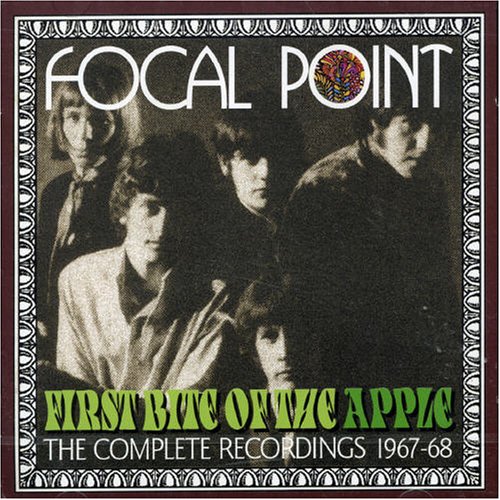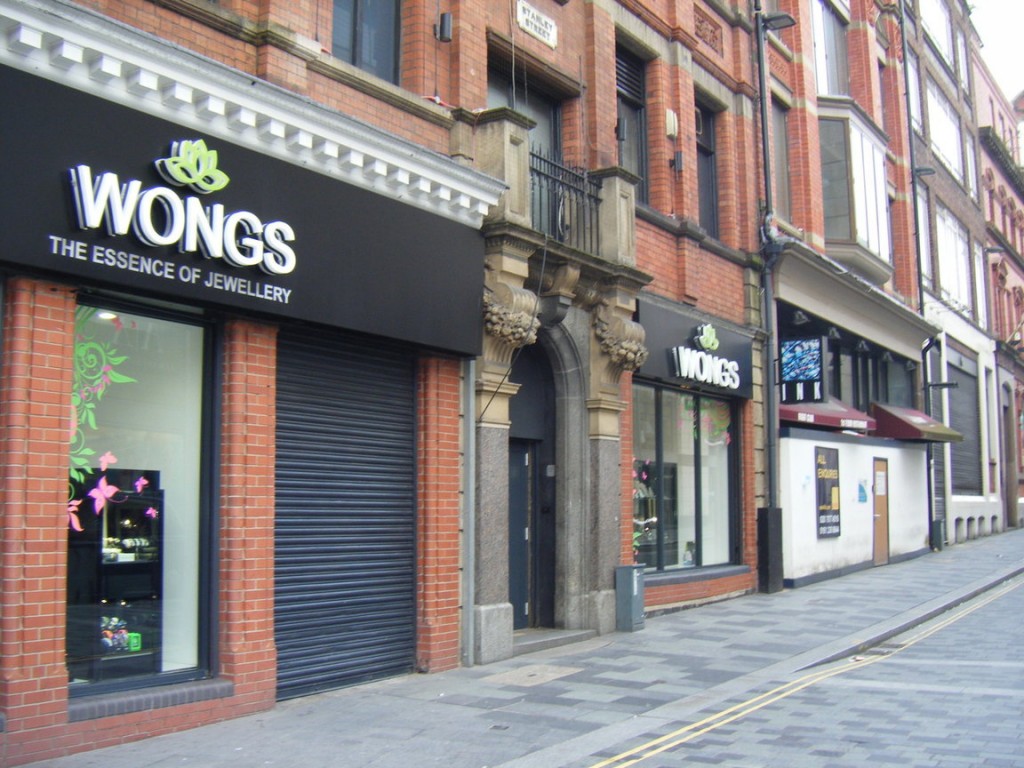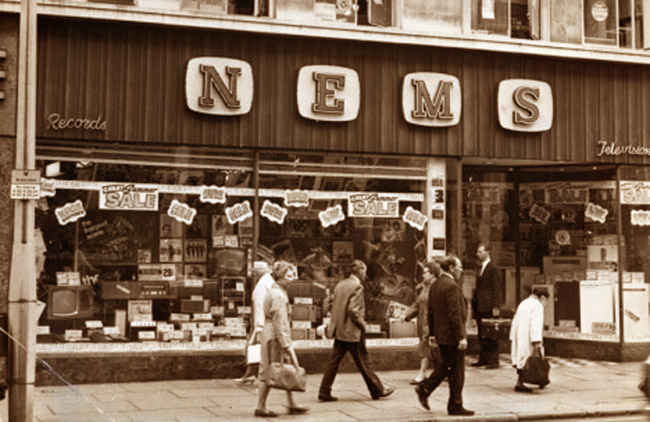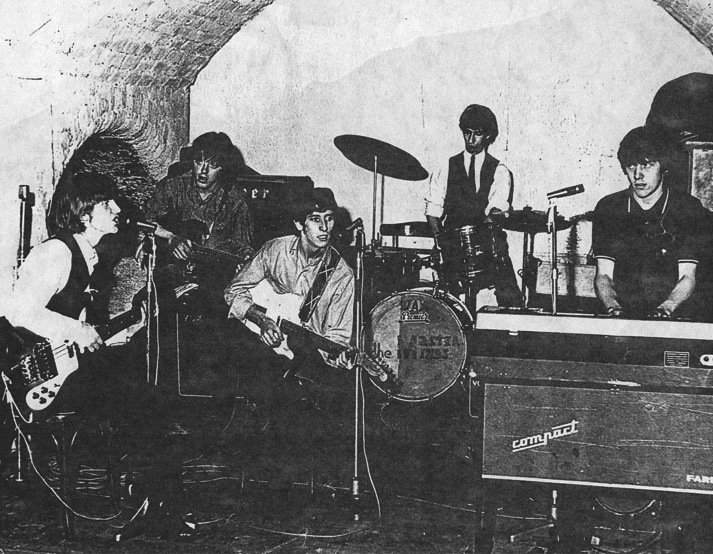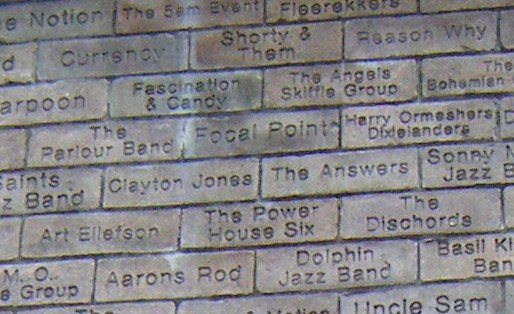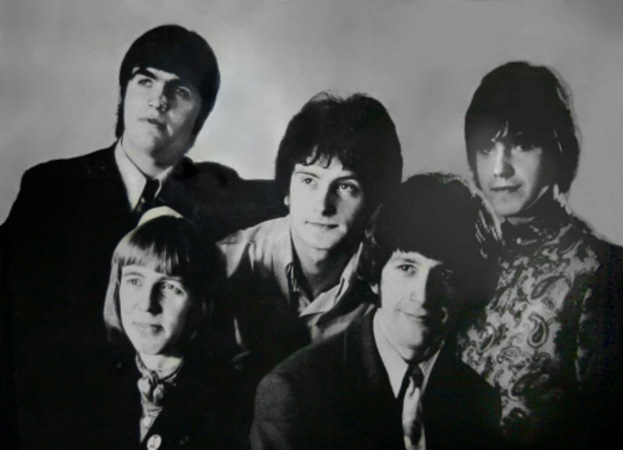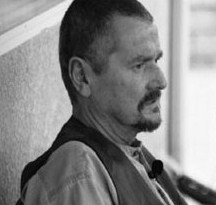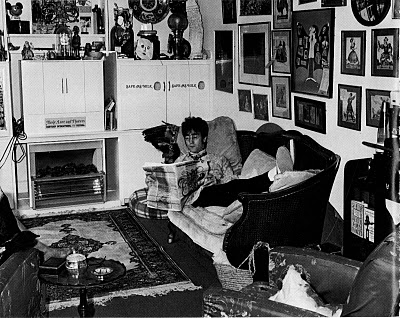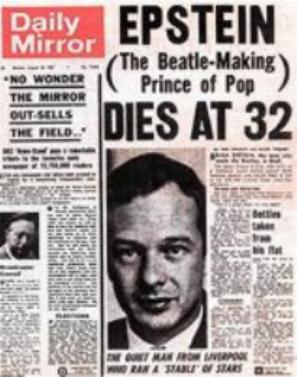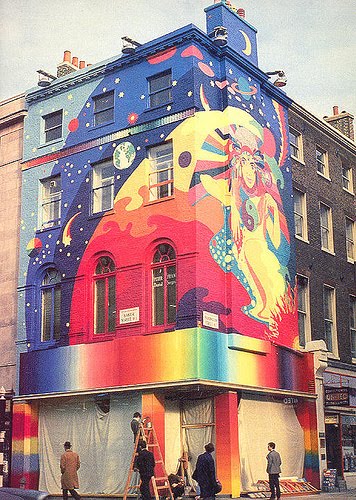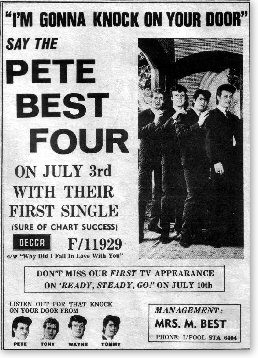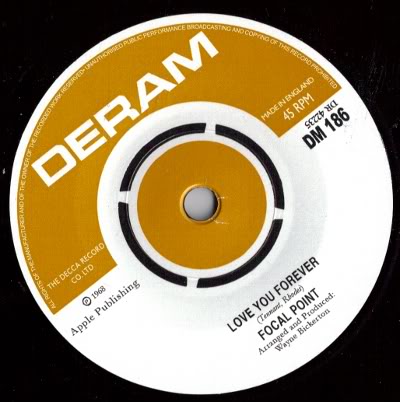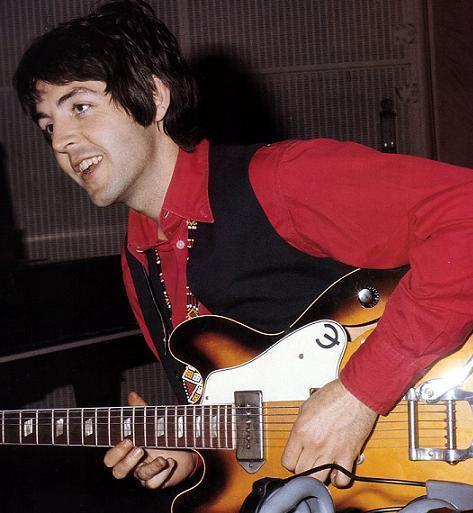Liverpool band Focal Point were the first act signed to Apple in 1967 but The Beatles’ embryonic organisation did not yet have a record label. The group signed to Apple Publishing with their single “Love You Forever” / “Sycamore Sid” released on Deram.
In early 1968 they were one of the hottest prospects in British rock, named by Brian Epstein and praised by The Beatles, but as Apple turned sour so did the group’s fortunes. Much of their material was finally released in 2003’s “94 Baker Street” compilation and their own well received 2005 cd “First Bit of the Apple” which is packed with pop-psych gems.
Focal Point, First Bite of The Apple, Kissing Spell CD, 2005For the first time, Focal Point’s bassist Dave Slater, tells Jason Barnard of the Strange Brew about his time in the band, Apple and The Beatles.
Hi Dave – can you tell me about your years before joining Focal Point. What was the Liverpool music scene like the early/mid Sixties?
Liverpool was an exciting place to be because of the music. I can remember very vaguely rationing in the Fifties. It was very austere with many bombed out buildings. Before rock and roll you were brought up on very old fashioned music like Johnnie Ray.
I had an uncle who was in the Korean War and he brought back American records. He brought back the first Elvis Presley 78s, when I was eight. I remember listening to Hound Dog. I loved it. Liverpool was a major port in the fifties/sixties. You’d have the sailors coming in with the records. The very first new music station was Caroline but that was years later. So you’d rely on word of mouth: “Bo Diddley, Little Walter: Who are these people?” It was like they were from another planet really.
Liverpool also had the influence of country music – rockabilly like Carl Perkins. George Harrison’s early playing is not influenced by the blues. It’s influenced by Scotty Moore, Elvis’ guitarist, a clean picking style. The Beatles early material featured Carl Perkins’ “Matchbox” and “Honey Don’t”.
I began playing the clarinet at the age 11 in the school band. Tim Wells was in the same school and year as me and we thought “let’s form a band”. We were interested in American r’n’b. We got a couple of other school friends and we did our first gig in a pub. We got £3 between the five of us. Tim had a makeshift keyboard and it was plugged into the lights. We were going through our final number – a real rocker. The landlady flashed the lights on and off for last orders. The keyboard was going on and off! It was these places where you cut your teeth.
Whitechapel in central Liverpool featured three places crucial to the Liverpool music scene. In the sixties, on the site of what now is a jewellery shop used to be the Kardomah Coffee Bar. All you would buy was one coffee that would last all day. It was know colloquially as the KD and where all the bands would meet including the Beatles in the late 50s and early Sixties. I was there frequently from 1965 to 66. All you would buy was just coffees. It didn’t make much money out of us! Different bands would get together, network and generally pass the time of day talking music.
The former site of the Kardomah Coffee Bar. Whitechapel, LiverpoolJust opposite was NEMS, the shop that Brian Epstein owned. When you finished in the KD you would wander over. He managed it at the time and you would sometimes see him there. Upstairs was electrical goods and downstairs in the basement you’d have music. You go into the booths and listen to the latest records.
NEMS Record Store, Liverpool, mid-SixtiesYou’d come out and next door to the KD you’d go to Hessy’s which was the music shop that everybody used. That’s where most of the Mersey musicians got into debt to buy their guitars! I bought my first Fender Precision Bass here back in 63 on HP over 2 years. We were all in debt!
What bands were there?
Local bands like the Masterminds and the Hideaways. The Masterminds included Joey Molland, later of Badfinger. My first job was working in a shipping office and I’d go to the afternoon sessions and I would be gone 2 hours for lunch. I used to watch Joey and was impressed with his guitar work.
The Masterminds at the Cavern, cica 1965 (thanks to Joey Molland and Michael A. Cimino, photo from http://www.cottageviews.com/badfingerandbeyondphotos.htm)I understand Focal Point were formed from Liverpool band’s The Maracas and The Top. Can you tell me more about this?
Paul, Dave Rhodes and Ted Hesketh started their life in The Maracas while me and Tim Wells, played in The Top.
The Top did very well locally playing the clubs all the time. We played mainly Tamla Motown – this would be in the mid-Sixties. We played the all-nighters in the Cavern when I was 16/17. We played with Focal Point at the original Cavern and in more recent years I’ve played the new Cavern again.
What I remember about the original one was that it wasn’t licensed. I can remember going down the steps to the cloakroom and this smell of coca-cola and hot-dogs.
They’ve tried to put a brick in the wall for all the bands that played the Cavern including Focal Point. They were not all Liverpool bands, London bands would play there. An awful lot across the whole spectrum of music.
Focal Point’s Cavern Brick (centre)There’s the famous tale of the band’s singer/songwriters Paul Tennant and Dave Rhodes tracking down Paul McCartney in 1967 which led to the group being the first to sign with Apple Publishing…
Dave and Paul’s tracking down of Paul McCartney is a true story. They bumped into him in a park and he gave them a telephone number of Terry Doran. So they went to Terry and they only had two guitars. The played four numbers for him including “Girl On the Corner” and “Miss Sinclair”. They went into a studio that day and some of the very early demos are on the “First Bite” CD. Brian heard it and liked it, and said I want you to form a band and call it Focal Point.
The Beatles in Hyde Park, London (18 May 1967) (photo from http://tornandfrayed.tumblr.com)So how did you get together?
149 Prescot Road, Liverpool was quite a popular venue for bands to play. It was originally known as The Labamba but by 1967 it was known as the 149 Club and was where Focal Point started their life.
149 Prescot Road, Liverpool. Now dilapidated but in the mid-Sixties it was The Labamba and then The 149 ClubWe were playing there one night with my band, The Top. Tim Wells and I were approached by these two guys in the interval.
They looked the part. It was 1967. One of them had a Kafkan on! We thought that this was really weird. We’d heard of flower power stuff and all that but it hadn’t reached Liverpool at the time. We were very much a Motown type band. They introduced themselves as Paul Tennant and Dave Rhodes. They said they had “a song writing deal with Apple. Brian Epstein wants us to form a band and call it Focal Point. We’d like you to play with us.” And so I thought about it for about two seconds! I said “Yes, ok we’ll do that.” Ted Hesketh joined us later from The Maracas – fantastic drummer. Dave was rhythm guitar, Paul was lead, me on bass and Tim on keyboards.
Focal Point (left to right), Back Row: Tim Wells, Dave Slater, Dave Rhodes, Front: Ted Hesketh and Paul TennantSo you then went down as a group in ’68?
When they decided who the band was Paul went back down to London and had a meeting with Terry Doran. Terry was the head of publishing at Apple. Apple at that time didn’t have a record company.
We all moved down there – the five of us plus a roadie called Bryan Rooney. I’d never met him before. We rented this van put our clothes and guitars in it and Ted’s dog – god knows how we fit it all in. And then we said “We need a roadie.” We hadn’t played one live gig at this point. Somebody said “I know a roadie and he lives not too far from here.” We knocked on the door and his sister answered. We said “Is Bryan In?” She said “Yes, I’ll get him.” It was the middle of the day. He got out of bed and the conversation went “We’ve just formed a band called Focal Point, we’re going to record at Apple, do fancy becoming our roadie?” He said “OK, give me five minutes.” He just put a t-shirt on and got in the van! He had more success than any of us. He went from Focal Point to Procul Harum. Then he got in with Ringo Starr and went over to America with him and they formed a company called Ritchie Rooney Enterprises. Then he got to work for Donna Summer. He died about five years ago but his book tells you about his days of slumming it in London-a rags to riches tale- to living in California.
Bryan RooneyWhen we went down there to record the demos Terry Doran said “Go down to John Lennon’s house in Weybridge, Surrey. I’ll meet you there and we will stay the night. He’s not in the country at the moment.” So we get there and it’s in total darkness. Terry wasn’t there. However our drummer managed to get in the house within seconds! When we got in there it was like an Aladdin’s Cave. There was film of the Beatles, clips that we didn’t know then would form part of the “Magical Mystery Tour” film. Mick Jagger phoned up looking for John. Terry eventually arrived there later that evening and apologised profusely. We spent the night there listening to all this music. “Sgt Pepper” was out then and we were listening to different versions with different track formations.
John Lennon at Kenwood, Weybridge, 1967Wasn’t John Lennon a fan and which tracks, in particular, did he like?
John Lennon was a fan and “‘Cept Me” was the song he really liked. It was thanks to him and Epstein that we got signed up. Paul McCartney pointed Paul and Dave in the direction of Terry Doran. However, before Apple would sign you in those early days two people out of a group of six had to agree. The Beatles, Epstein or Terry Doran. It was Epstein and John Lennon.
Epstein named the band. It was as simple as that. I never met him. He died before I went down. He died in that short window before I came down.
The Death of Brian EpsteinWhat was Apple like in 1968 did you have much contact with other artists or people from Apple Corps?
Apple had a publishing house in Baker Street. They had a boutique in the basement. The Beatles had this idea of signing up talent if they liked you regardless of how commercial you sounded. They said ok, get the band down here. We’ll put you in our demo studio. The top floor of Baker Street had a four track for recording onto acetates. We all went down and my first impressions of Terry was this guy with a Bob Dylan hair cut and a lime green suit. Very bouncy – bubbly. All I remember of Apple was white leather everywhere. Plush carpets – a very luxurious place.
Terry Doran (photo from http://www.marmalade-skies.co.uk/focalpoint.htm)We were put on a retainer – we weren’t paid a salary as such. They rented a house for us down there in Whistler Street in North London where we lived for about a year – maybe longer. Five fellas, a roadie and a dog named Winnie – we enjoyed it.
What happened was we weren’t signed to Apple Records – they hadn’t formed it then. It was literally the beginnings. We were the first artists signed to Apple publishing, then came along Grapefruit and The Iveys. In the days we were there Apple brought in Lionel Morten, the ex-Four Pennies singer, as our producer. We’d spend from midday to the early hours of the morning, at the top of the place at Baker Street, putting down the material that Dave and Paul had written. At that point, Apple had only four songs from them acoustic versions such as “Tales from the GPO Files”, “Girl on the Corner” and “Miss Sinclair”. So we recorded versions as a band.
That was the life. We’d finish recording late in the evening and go out to one of the local clubs where all the stars hung out. It was a great scene. People would just walk in and out – the Beatles of course, Mick Jagger. Also in the Apple building was Robert Stigwood’s organisation. They had a company called Dratleaf and the Bee Gees and Cream were signed to it.
94 Baker Street, December 1967, with psychedelic paintjob from The Fool!You also worked with legendary producer Wayne Bickerton…
Wayne Bickerton joined the Pete Best Band on bass but it didn’t work out and he decided to go to the other side of the desk. He went down to London and became a staff engineer and producer at Decca. We made those first four Apple publishing demos. Terry would take them round to the various record companies. We went back to Liverpool and waited.
The Pete Best Four featuring Wayne Bickerton “I’m Gonna Knock On Your Door” Publicity Photo (courtesy of Bill Harry from www.mersey-beat.com. Permission granted.)You signed with Decca/Deram…
Terry said there are four major companies wanting to sign you up – Decca, Pye, MGM and Liberty. Decca’s subsidiary was Deram which at the time was a fairly new label. Out of them all it was probably the best deal of the lot. Apple left it to us to decide and so we signed to Decca. We went back down to London and recorded for two days at Decca’s No.2 studios which the Rolling Stones were using regularly then. The tracks were “Sycamore Sid”, “Love You Forever”, “Girl On The Corner” and “Never Never”. McCartney wanted “Never, Never” released as a single.
https://www.youtube.com/watch?v=m2-kB1ccylE
But it was left to the Decca committee to decide what was to be put out. They decided that “Love You Forever” was to be the single. It wasn’t what we wanted.
Focal Point “Love You Forever”, Deram Single, 1968You had use of the Beatles equipment?
Yeah. I had my own bass equipment and I didn’t need them. I was a Fender man through and through which I used all time on the recordings and live shows. Paul and Dave, the two songwriters, borrowed their gear regularly. Terry Doran said, “Yes, if they’re not using it you use it.”
Paul tells that story about swapping over the strings – from a left hander to a right hander – and suddenly McCartney wants it back again. It was an Epiphone. They were frantically changing the strings back to make it look like it had never been missing!
Paul McCartney and his Epiphone Casino GuitarThe second part of Jason Barnard’s extensive interview with Dave Slater on Focal Point, Apple and The Beatles can be found here:
http://thestrangebrew.co.uk/articles/dave-slater-focal-point-apple-the-beatles-pt2
